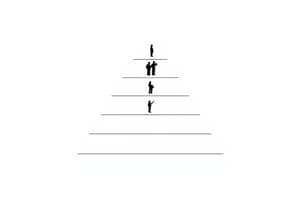Podcast
Questions and Answers
Who are the two humanistic psychologists mentioned in the text?
Who are the two humanistic psychologists mentioned in the text?
- Carl Rogers and Sigmund Freud
- Abraham Maslow and Carl Rogers (correct)
- Abraham Maslow and B.F. Skinner
- Abraham Maslow and Sigmund Freud
What is the main focus of humanistic psychologists?
What is the main focus of humanistic psychologists?
- Analyzing childhood experiences
- Understanding healthy individuals (correct)
- Developing new therapies
- Studying abnormal behavior
What is the first level of needs in Maslow's Hierarchy?
What is the first level of needs in Maslow's Hierarchy?
- Esteem Needs
- Physiological Needs (correct)
- Love and Belongingness Needs
- Safety Needs
What type of needs are focused on after physiological needs are met?
What type of needs are focused on after physiological needs are met?
What is the need for in Maslow's Hierarchy?
What is the need for in Maslow's Hierarchy?
What is the highest level of needs in Maslow's Hierarchy?
What is the highest level of needs in Maslow's Hierarchy?
What is Carl Rogers' statement about human behavior?
What is Carl Rogers' statement about human behavior?
What is the goal of humanistic psychology according to Carl Rogers?
What is the goal of humanistic psychology according to Carl Rogers?
What is the source of psychological distress according to the text?
What is the source of psychological distress according to the text?
According to Carl Rogers, what is a characteristic of humans?
According to Carl Rogers, what is a characteristic of humans?
What are the three conditions required for a growth-promoting climate according to Carl Rogers?
What are the three conditions required for a growth-promoting climate according to Carl Rogers?
What is the meaning of 'accepting' in the context of Carl Rogers' person-centered approach?
What is the meaning of 'accepting' in the context of Carl Rogers' person-centered approach?
What is the outcome of conditional positive regard in relationships?
What is the outcome of conditional positive regard in relationships?
What is the purpose of empathy in Carl Rogers' person-centered approach?
What is the purpose of empathy in Carl Rogers' person-centered approach?
What is the result of not receiving unconditional positive regard in childhood?
What is the result of not receiving unconditional positive regard in childhood?
What is the main goal of humanistic psychology according to Carl Rogers?
What is the main goal of humanistic psychology according to Carl Rogers?
Flashcards are hidden until you start studying
Study Notes
Humanistic Theory
- Focuses on healthy people's strive for self-determination, contrasting with Freud's study of sick people's motives
- Abraham Maslow and Carl Rogers are key figures in humanistic psychology
Maslow's Hierarchy of Needs
- Basic Needs: physiological needs, safety needs, love and belongingness needs, esteem needs, and self-actualization needs
- Physiological Needs: basic necessities like food, water, and shelter
- Safety Needs: needs for security, order, and stability
- Love and Belongingness Needs: needs for affiliation, friendship, and intimate relationships
- Esteem Needs: needs for respect, self-esteem, and recognition
- Self-Actualization Needs: realizing one's full potential and pursuing personal growth
Carl Rogers' Person-Centered Approach
- Humans are basically good and have self-actualizing tendencies
- Psychological distress arises from a mismatch between self-concept and ideal self
- A growth-promoting climate requires genuineness, acceptance, and empathy
- Genuine: open with own feelings, transparent, and self-disclosing
- Accepting: unconditional positive regard, valuing others despite their flaws
- Empathic: sharing and mirroring feelings, reflecting meanings
- Unconditional positive regard involves accepting the person as they are, without conditions
Studying That Suits You
Use AI to generate personalized quizzes and flashcards to suit your learning preferences.




